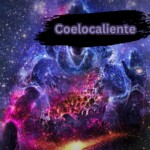In the vast landscape of online content, few platforms spark as much discussion and debate as nhentai.het. A site dedicated to hosting a wide range of hentai, or adult anime, NHentai has become a significant player in niche internet culture. This article will delve into what nhentai.het is, its origins, the nature of its content, its user base, and the controversies surrounding it.
What is nhentai.het?
Â
nhentai.het is a web platform that primarily hosts a collection of hentai doujinshi (self-published works), manga, and other adult-oriented content. It offers users the ability to browse, search, and read these works for free. The site features a simple and user-friendly interface, which has contributed to its popularity among fans of the genre.
Launched in 2017, NHentai emerged during a time when the demand for adult anime content was rapidly growing. The platform was designed to fill a gap in the market for easy access to such content. It quickly gained traction due to its extensive library and the convenience it offered to users looking for specific genres or tags.
The Content on NHentai
One of NHentai’s standout features is its tagging system. Users can filter content by various criteria, such as genre, themes, and specific fetishes. This level of customization allows for a tailored browsing experience, catering to diverse tastes within the hentai community.
The site hosts thousands of titles, ranging from popular series to obscure doujinshi. This vast collection is primarily user-uploaded, with creators and fans contributing their works. While some titles may have commercial backing, many are independently produced, reflecting the DIY ethos of the doujinshi culture.
User Demographics and Community
nhentai.het attracts a diverse audience, primarily consisting of young adults and teenagers with an interest in anime and manga. The platform’s anonymity allows users to explore content without the fear of judgment, contributing to its appeal. The community surrounding NHentai is vibrant, with forums and social media groups discussing various aspects of hentai culture, from favorite series to fan theories.
The legality of the content hosted on nhentai.het raises important questions. The site operates in a grey area of copyright law, as many doujinshi are based on existing franchises. While some creators distribute their works for free, others may not authorize the reproduction or distribution of their content. NHentai’s approach to hosting such material often leads to debates over intellectual property rights and the ethics of sharing fan-created works.
Controversies and Criticisms
Despite its popularity, nhentai.het is not without its controversies. Critics point to several concerns:
- Content Concerns: Some of the material available on NHentai can be explicit and graphic, raising concerns about the portrayal of sexual themes, particularly those involving minors or non-consensual scenarios. This has led to calls for stricter content moderation and ethical considerations regarding the types of works hosted.
- Accessibility and Influence: The accessibility of NHentai raises questions about its influence on younger audiences. Critics argue that exposure to certain themes and portrayals of sexuality could shape users’ perceptions of relationships and consent, particularly if they are not provided with proper context or education.
- Impact on Creators: There is ongoing debate about how platforms like NHentai affect the original creators of anime and manga. While some creators support the sharing of fan works, others see it as a threat to their intellectual property and potential revenue streams.
The Future of NHentai
As the landscape of online adult content continues to evolve, so too will nhentai.het. The site has seen several changes in terms of its user interface, search functionalities, and community engagement features. However, the core mission remains the same: to provide a platform for sharing and exploring hentai content.
In the coming years, nhentai.het may need to navigate increasingly complex legal challenges, especially as copyright laws evolve to address the unique challenges posed by fan-made content. Additionally, as societal attitudes towards sexuality and adult content shift, NHentai may find itself at the forefront of discussions about consent, representation, and the role of adult material in culture.
Conclusion
nhentai.het stands as a testament to the complexities of internet culture and the ongoing conversations surrounding adult content. It serves a particular niche audience while also raising important questions about legality, ethics, and community standards. As both a platform and a cultural phenomenon, nhentai.het reflects the diverse ways in which people engage with erotic art and storytelling in the digital age. Whether viewed as a harmless outlet for creativity or a site of concern, NHentai will likely continue to be a focal point in discussions about the future of adult content online.
Â






